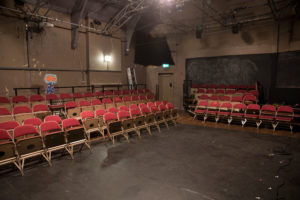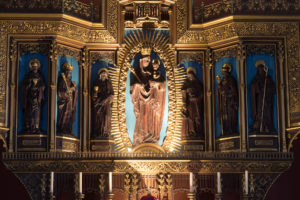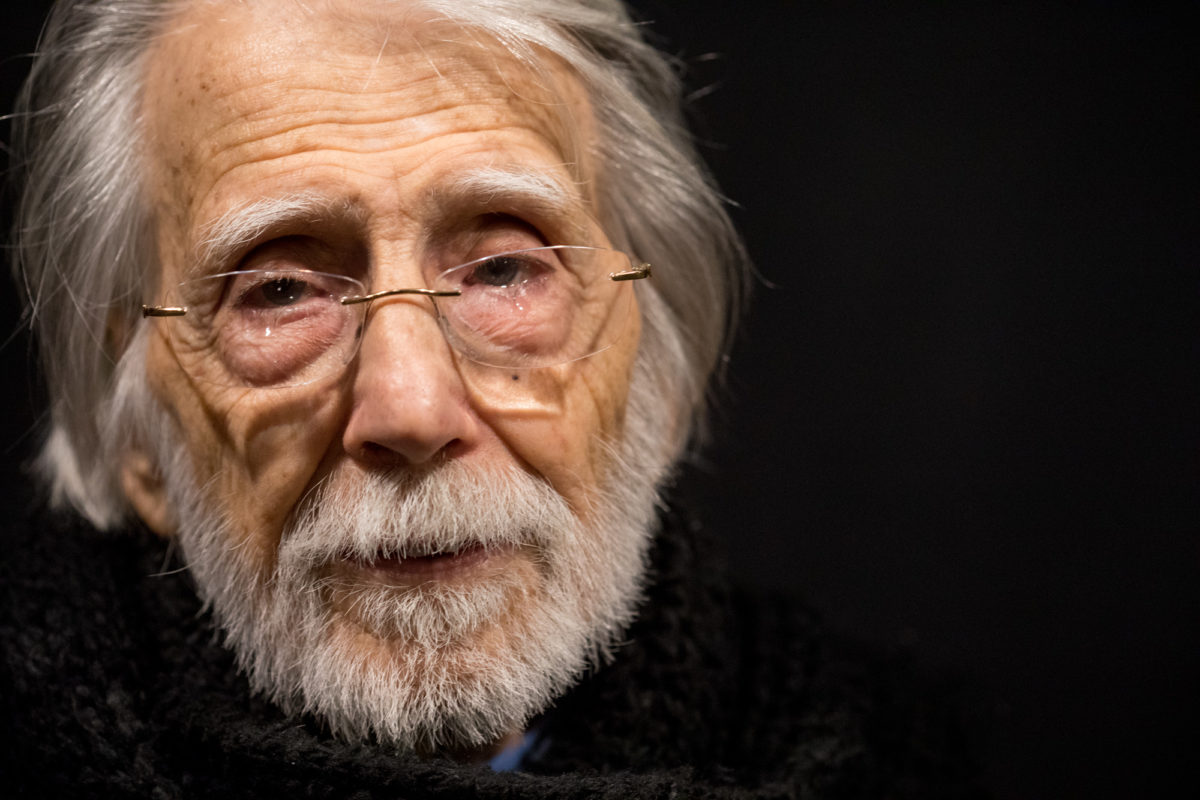George Eugeniou approaches playwriting as a cycle: it starts on the ground, with his community, where he embeds himself in the lives and struggles of the people around him. He then pours that experience back into the creative melting pot, and makes work that is rooted in the concerns of his time and place. This process gives him an understanding of life that keeps his theatre authentic and relevant. And then sometimes, the lessons learned in the theatre find their way back to the schoolroom of life.
This is what happened in 1985, when Vasilis and Katerina Nicola, Cypriot refugees who had been living in London for the past nine years, arrived at Theatro Technis, deportation papers in hand, asking George for help. Without a moment’s hesitation, George responded, “Vasilis, we do what we did in the play”.

Photograph credit: Michael Hall – inside Theatro Technis
“Getting involved with the community; make theatre through your experience…through the theatre you learn how to deal with life”
Two years earlier, motivated by the 1974 Turkish invasion of Cyprus, which resulted in 10,000 Cypriot refugees arriving in the UK, George wrote and produced a play. The Appellants told the story of a Greek Cypriot man and a Turkish Cypriot woman, who had fled occupied northern Cyprus and sought refuge in King’s Cross. In the play, the couple appeal, through an English friend, to the vicar of an unnamed church, where they are ultimately given sanctuary. The idea for the couple taking refuge in a church was drawn directly from the events taking place around George. In 1982 The English Collective of Prostitutes occupied the Church of the Holy Cross in King’s Cross, to protest against the police violence they were experiencing, and when he read about it, the notion of Sanctuary captured George’s imagination.

During his research for the play, George learned that no law prevented the police from entering a church and arresting the couple. He knew that if he wanted the Nicola’s sanctuary to be safe from the police, he would have to rely on his wits, and not the law, to prevent their arrest. So he called Camden Breakfast TV, told them that he had a sensational story for them to cover, and invited them to come and film Vasilis and Katerina entering the church and making their beds.

The plan worked. The story was broadcast, and the couple secured the widespread support of the public. This support prevented the police from entering and arresting Vasilis and Katerina, who enjoyed the sanctuary of St Mary’s Church for 5 months, before Katerina fell ill and was forced to leave.

Photograph credit: Michael Hall – inside St Mary’s Church, Somers Town
According to George, The Nicola Sanctuary inspired, in turn, St Aloysius Catholic Church, just around the corner on Phoenix Street, to offer sanctuary to a Filipino woman, and her son who were threatened with deportation. Fearing the spread of the Sanctuary Campaign across the country, the Thatcher Government granted 2000 Cypriot refugees indefinite leave to remain. You can watch the film that was made about the Sanctuary at the time here.
Listen to George’s story to hear how he fought for Theatro Technis’ place in King’s Cross- and the story of the Sanctuary, in his own words.
Story by Polly Rodgers
